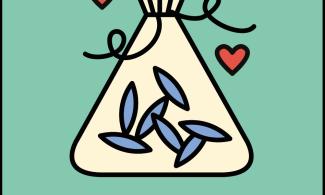A talk by Dr Daniel Fuks, Department of Archaeology, University of Cambridge
Event information
No booking required. Normal Garden entry fee applies. Suitable for adults and children aged 12+. Talks continue through the summer.
From exploring herbarium uses to discovering the secrets of wildflowers and fungi, come and discover the fascinating world of plant science in just 30 minutes! Science on Sundays is a free, informal and monthly series of talks, sharing the latest discoveries in plant science and research with our visitors.
The food crops we consume daily form a mosaic of global origin. Wheat, barley and lentils were some of the earliest domesticated plants in Southwest Asia over 10,000 years ago, and subsequently spread throughout the world. Since 1492, maize, potatoes and tomatoes have likewise globalised from their American origins. In between these two great historical crop exchanges, and on par with them, were the lesser-known movements of crop plants across the Roman Empire and Early Islamic caliphates in the first millennium CE. Roman agricultural diffusion (RAD) saw crops such as peaches, apricots, dates, melons, rice and black pepper introduced to Britain, while pears, plums, pine nuts, hazelnuts, and white lupin were introduced to Roman Palestine. The Islamic Green Revolution (IGR) saw the introduction of tropical crops like banana, orange, and sugarcane and others into the Middle East and Mediterranean.
Focusing on new archaeobotanical research from the Southern Levant, this talk will consider the evidence for RAD and the IGR, suggesting that the first millennium was an unprecedented period of long-distance crop diffusion.



